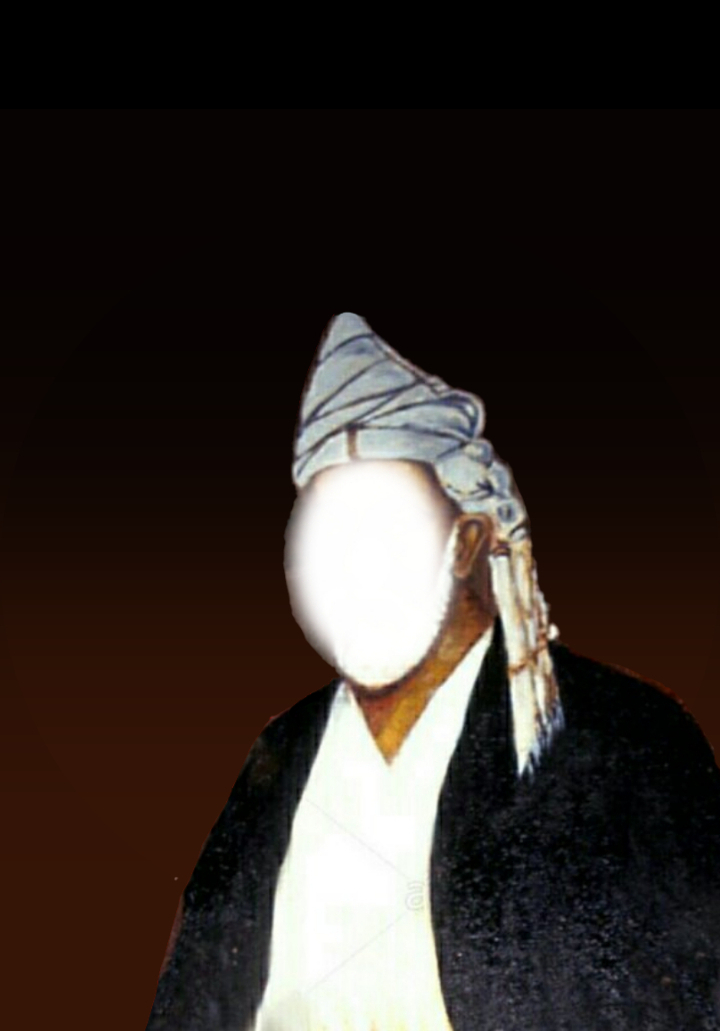لا أهل الضلال والبدع
“La Ahl al-Dalal wal-Bid’ah” “No to the people of misguidance and heresy”
Abdullah Ibn 'Umar narrated: that the Messenger of Allah (SAWS) said: “O Allah bless us in our Sham! O Allah bless us in our Yemen.” They (one of the companions) said: “And in our Najd” He (the Prophet) said: “O Allah bless us in our Sham and bless us in our Yemen.” They (one of the companions) again said: “And in our Najd” He (the Prophet) said: “Earthquakes are there, and tribulations are there and The horn of Shaitan comes from there.”
All started with Taqi ad-Din ʾAḥmad ibn ʿAbd al-Ḥalim ibn ʿAbd al-Salam al-Numayri al-Harrani (LA) also known as Ibn Taymiyyah Who was born in January 22, 1263 and died in September 26, 1328
Ibn Taymiyyah was noteworthy for engaging in intense religious polemics in attacking the followers of Kalam (speculative theology); namely Ash’arism, while defending his version of the Athari-traditionalist school of theology which he believed all Sunni Muslims should follow. Ibn Taymiyyah has often been cited as a considerable influence in the development of the Salafi movement, both for jihadist and political quietist iterations of the movement.
Major aspects of his teachings such as upholding the pristine monotheism of the early Muslim generations and campaigns to uproot what he regarded as shirk (idolatry); had a profound influence on Muhammad ibn Abd al-Wahhab al-Najdi, the founder of the Wahhabist reform movement formed in Najd, Saudi Arabia.
Ibn Taymiyyah’s doctrinal positions, such as his Takfir (excommunication from the religion) of the Mongol Ilkhanates, allowing jihad against other self-professed Muslims, were referenced by Islamic social movements such as the Muslim Brotherhood to justify social uprisings against contemporary governments across the Muslim world. Ibn Taymiyya was a fervent polemicist who waged perpetual theological attacks against various religious sects such as the Sufis, Jahmites, Asha’rites, Shias, Falsafa (Islamic philosophy) etc., labelling them as heretics responsible for the crisis of Mongol invasions across the Islamic World. Ibn Taymiyyah adopted the view that God should be described as he was literally described in the Qur’an and in the Ahadith (Tashbih/anthropomorphism).
Muhammad ibn Abd al-Wahhab ibn Sulayman al-Najdi (LA) was born in 1703 and died in 1792
Muhammad ibn Abd al-Wahhab promoted strict adherence to traditional Islamic law, proclaiming the necessity of returning directly to the Quran and Ahadith literature. His call for social reform in society was based on the key doctrine of tawhid (oneness of God), and was greatly inspired by the treatises of classical scholars Ibn Taymiyya and Ibn Qayyim. Despite his teachings being rejected and opposed by various critics amongst the contemporary Sunni clergy, such as his own father and brother, Ibn ʿAbd al-Wahhab charted a religio-political pact with Muhammad bin Saud to help him to establish the Emirate of Diriyah, the first Saudi state, and began a dynastic alliance and power-sharing arrangement between their families which continues to the present day in the Kingdom of Saudi Arabia.
Realising the significance of efficient religious preaching (da’wa), Ibn 'Abd al-Wahhab called upon his students to master the path of reasoning and proselytising over warfare to convince other Muslims of their reformist endeavour. eradicating various popular practices they viewed as akin to polytheism and propagating his doctrines.
The Wahhabi sack of Karbala occurred on 21 April 1802
The Wahhabi sack of Karbala occurred on 21 April 1802 (1216 H), under the rule of Abdulaziz bin Muhammad the second ruler of the First Saudi State. Approximately 12,000 Wahhabis from Najd attacked the city of Karbala, Ottoman caliphate (today Iraq).
The raid was conducted in retaliation against attacks on Hajj (pilgrimage) caravans by Iraqi tribes and coincided with the anniversary of Ghadir Khum event, or 10th Muharram. The Wahhabis killed 2,000–5,000 of the inhabitants and plundered the tomb of Husayn ibn Ali, the grandson of the Islamic prophet Muhammad and the son of Ali ibn Abi Talib and Fatimah ibnah Muhammad, and destroyed its dome, seizing a large quantity of spoils, including gold, Persian carpets, money, pearls, and guns that had accumulated in the tomb, most of them donations. The attack lasted for eight hours, after which the Wahhabis left the city with more than 4,000 camels carrying their plunder.
Following the teachings of Ibn Taymiyya, the Wahhabis “sought to return to the fundamentals of the tradition – the Quran, the Sunna, and the Hanbali school’s legal positions.” The Wahhabis condemned some of the Shia practices such as veneration of the graves of their holy figures and Twelve Imams, which they called Bid‘ah, and did not limit themselves to academic confrontation.
The Wahhabis of the Najd led by Abdulaziz bin Muhammad’s son, Saud, attacked Karbala. The Ottoman garrison escaped, and the Wahhabis were left free to loot the city and the shrine and kill 2,000–5,000 people. The event was described as "a horrible example of Wahhabis’ cruel fanaticism in the terrible fate of Husayn ibn Ali.
12,000 Wahhabis attacked the city, set fire to everything, and killed old people, women, and children. The leader of the attack, Saud bin Abdulaziz bin Muhammad bin Saud, has been known as the ‘butcher of Karbala’ since then.
Their beliefs and thoughts:
They believe that Allah has a form (Tashbih/anthropomorphism) this belief is rejected by the majority of Muslims
They see others who don’t have or share their beliefs as Kafirs (unbelievers) and that includes Muslims and Non-Muslims who deserve to lose their lives
They call themselves the “true Muslims” because they uphold Tawhid (divine unity) but say that Allah has a form (again this falls under shirk/idolatry and is not accepted by the majority of Muslims)
They believe that a person must not be considered a Muslim even if he pronounces the Shahadah (testimony)
They reject reason (al-Aql), a ability given by Allah to acquire knowledge and recognize truth (Haq)
They misinterpret the Qur’an and Ahadith and also change their meaning so to serve their own interests
They believe that women should not learn the Qur’an nor they shouldn’t lead the prayer (muslim women during the era of the Prophet and after him leaded the prayer and readed the most longest verses of the Qur’an during prayer, for example Juwayriyah ibnah al-Harith and Ghazalah al-Shaybani)
– May all of you have a nice day or night 👍🏼 and May Allah’s blessings be upon you.
Extremely based, death to the Wahhabist/Salafist virus concocted by the Brits and Sauds that’s infecting, poisoning and corrupting the Muslim World and making the ummah close-minded! I bet this is what Muhammad meant when he said “In the end times, there wouldn’t be any letters in the Qur’an”.


